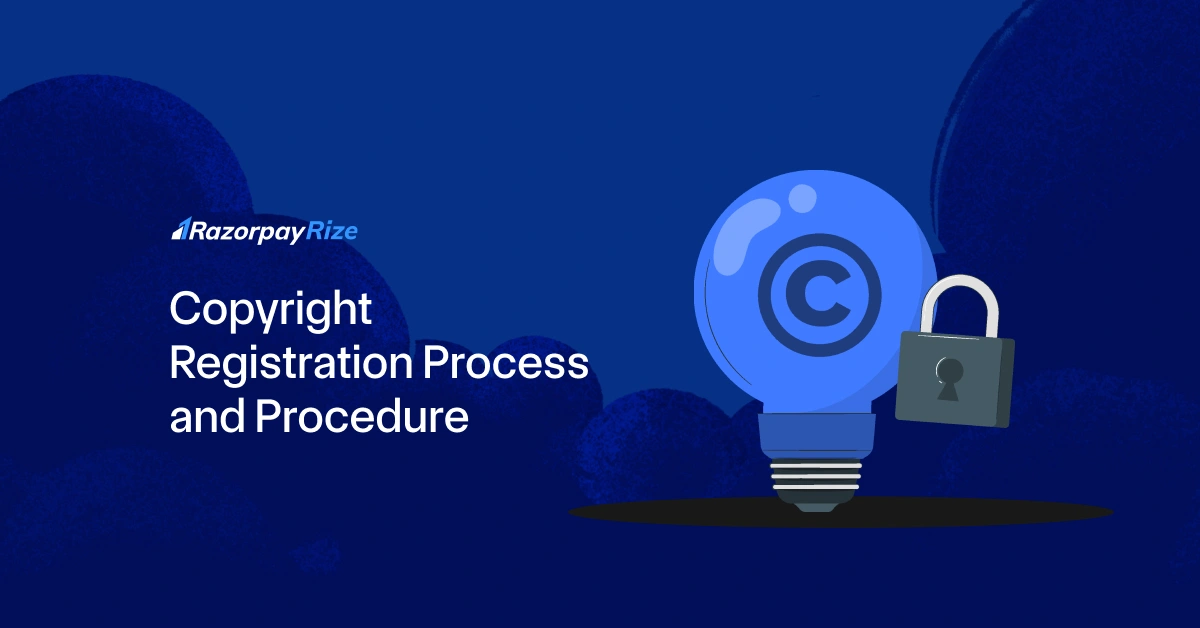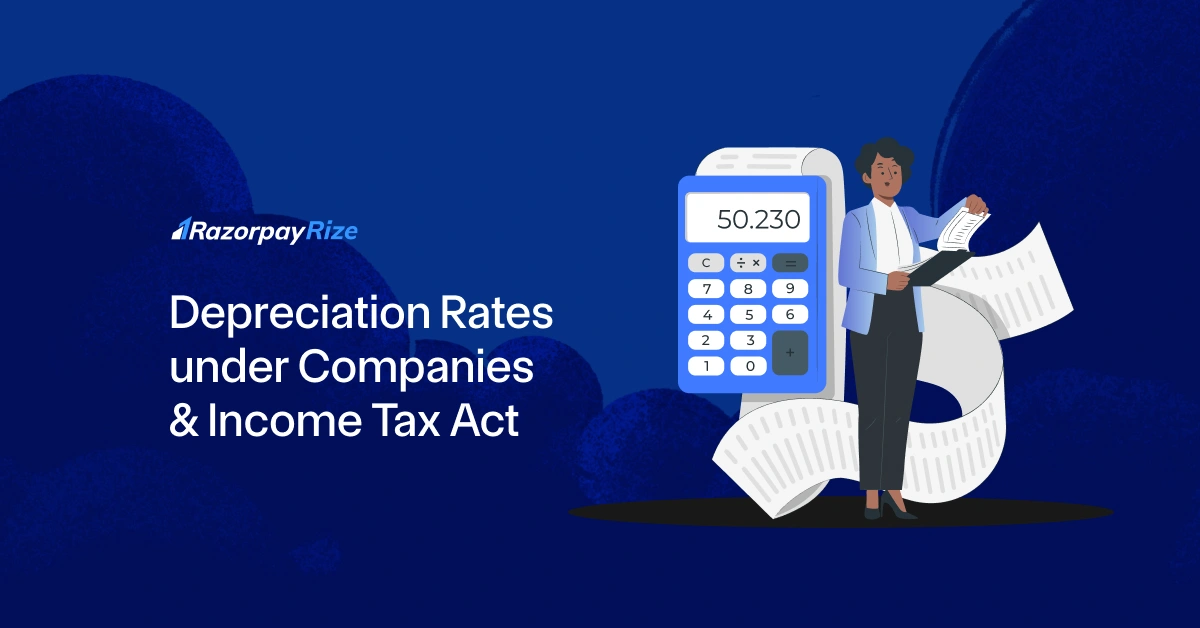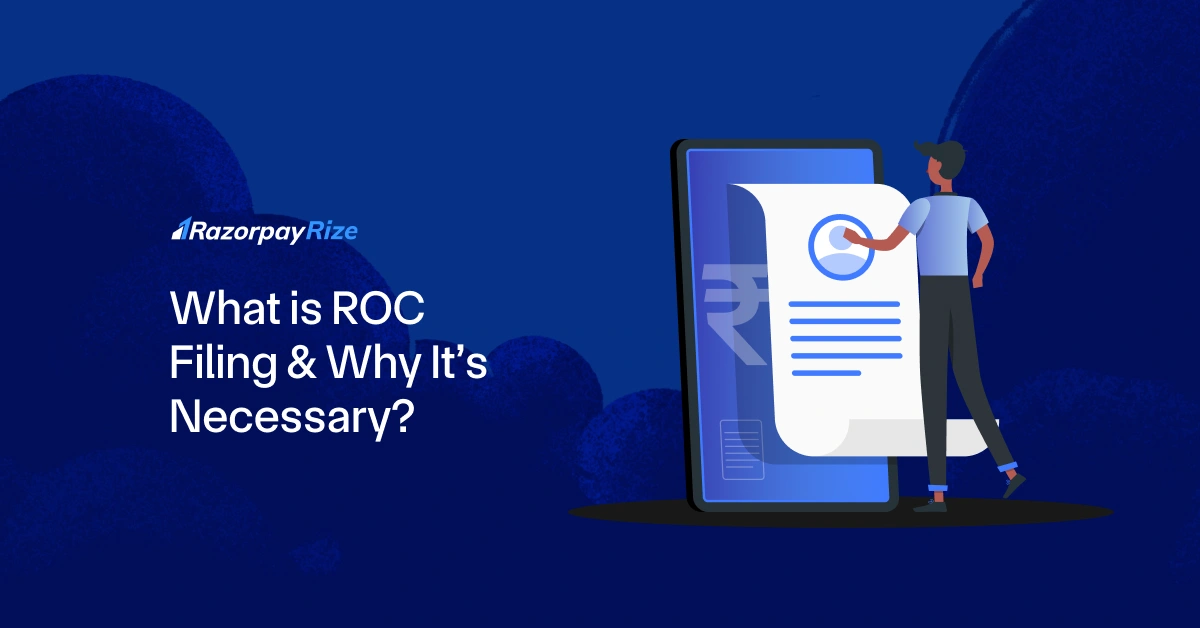What is Depreciation?
Depreciation is the systematic allocation of an asset's cost throughout its productive lifespan. It acknowledges that assets contribute to revenue generation over multiple periods and should be expensed accordingly. Without depreciation, businesses would show dramatic profit fluctuations - significant losses when purchasing assets followed by artificially inflated profits in subsequent years.
The Indian regulatory framework recognizes two distinct approaches to depreciation. The Companies Act 2013 employs a useful life methodology for financial reporting, while the Income Tax Act prescribes specific rates for tax calculation purposes.
From an accounting perspective, depreciation appears as an expense in the Profit & Loss Account, reducing reported profit. Simultaneously, accumulated depreciation diminishes the asset's book value on the Balance Sheet, reflecting its decreasing value over time.
Several factors influence depreciation calculations, including the asset's original cost, estimated useful life, and expected residual value. Different methods may be applied based on regulatory requirements and business preferences.
Understanding depreciation is critical for businesses as it significantly impacts financial statements, tax liabilities, and strategic decision-making. The varying approaches between the Companies Act 2013 and Income Tax Act create temporary differences that require reconciliation during tax calculations.
The Purpose of Depreciation
Depreciation goes beyond tracking asset wear and tear, it aligns asset costs with the revenue they help generate, ensuring accurate financial reporting through the matching principle.
Without it, businesses would expense the full asset cost upfront, causing erratic profit figures, losses during purchase years and inflated gains afterward.
Key purposes of depreciation:
- Cost Allocation: Spreads asset cost over its useful life
- Profit Measurement: Matches expenses with related income
- Tax Efficiency: Enables tax deductions under the Income Tax Act
- Asset Replacement: Aids in planning for future replacements
- Financial Stability: Smooths profit reporting over time
In India, depreciation is a non-cash expense. Companies Act rates differ from Income Tax Act rates, leading to temporary timing differences reconciled through deferred tax accounting. Both systems aim to fairly allocate asset costs over time.
Importance of Depreciation
Depreciation serves as a cornerstone of sound financial management, with implications reaching far beyond routine accounting entries. The strategic implementation of depreciation practices significantly impacts business operations across multiple dimensions.
Why is depreciation so critical for businesses?
Financial statements without proper depreciation would present a severely distorted view of company performance. Consider purchasing a ₹50 lakh manufacturing machine—expensing this entire amount immediately would dramatically reduce that period's profit. Subsequently, future periods would show artificially inflated profits as the machine generates revenue without corresponding expenses. This creates misleading financial trends that can confuse investors and stakeholders about the company's true financial health.
The depreciation methodology varies substantially between regulatory frameworks. A company typically uses straight-line depreciation following Schedule II of the Companies Act for financial reporting, while simultaneously applying the Written Down Value method at Income Tax Act rates for tax purposes. This dual approach helps optimize both financial reporting accuracy and tax efficiency.
Depreciation impacts businesses in five critical ways:
- Financial Stability - Prevents dramatic profit fluctuations by distributing asset costs over multiple periods
- Resource Planning - Helps accumulate funds for eventual asset replacement
- Investor Confidence - Provides more realistic performance metrics for investment decisions
- Tax Planning - Creates opportunities for tax-efficient asset management
- Business Valuation - Affects key metrics used in determining company worth
For Indian businesses, understanding depreciation rates under both regulatory frameworks is essential. The Income Tax Act allows depreciation as a deduction when calculating income under "Income from Business and Profession," directly affecting taxable income. Meanwhile, the Companies Act 2013 focuses on representing the true economic consumption of asset value.
Without proper depreciation accounting, businesses would struggle to present an accurate representation of their financial reality. The systematic allocation of asset costs ensures financial statements reflect a company's true economic position, providing stakeholders with reliable information for decision-making.
{{company-reg-cta}}
Types of Depreciable Assets
Identifying qualified assets is the essential first step for businesses looking to claim depreciation benefits. Under both the Companies Act and Income Tax Act, depreciable assets fall into two primary categories that form the foundation of depreciation calculations.
Tangible Assets
These physical assets constitute the backbone of most business operations and include:
- Buildings: This category includes residential structures with a 5% depreciation rate, hotels and boarding houses at 10%, and temporary wooden structures at a higher 40% rate
- Furniture and Fittings: All furniture including electrical installations qualify for a 10% depreciation rate
- Plant and Machinery: This diverse category encompasses motor vehicles (15% rate), while computers and software receive an accelerated 40% rate
- Vehicles: Commercial vehicles like taxis, buses, and lorries used in hire businesses attract a 30% depreciation rate
- Books: Professional annual publications qualify for 100% depreciation, while non-annual publications receive 60%
Intangible Assets
Though lacking physical form, these assets hold significant business value and generally receive a uniform 25% depreciation rate:
- Franchises
- Trademarks
- Patents
- Licenses
- Copyrights
- Know-how
- Other similar business or commercial rights
The Block of Assets Concept
The Income Tax Act introduces a unique "Block of Assets" approach, where assets with similar characteristics are grouped together. Initially, tangible assets are categorized as building, machinery, plant, or furniture. For assets to form a block, they must attract identical depreciation rates.
Once assets are grouped into a block, they lose their individual identity for depreciation purposes. This approach significantly simplifies tax compliance by eliminating the need to track numerous individual assets.
Qualification Requirements
For assets to qualify for depreciation claims, they must meet two essential conditions:
- Ownership: The assets must be owned by the assessee, either wholly or partly
- Business Usage: The assets must be used for business or professional purposes
Year-round usage isn't mandatory—even seasonal utilization qualifies for appropriate depreciation benefits. This provision acknowledges the reality of businesses with cyclical operations.
Companies typically classify their assets based on nature, useful life, and applicable depreciation rates as prescribed in the respective acts, ensuring proper accounting and taxation treatment.
What is Written Down Value or WDV Asset?
Written Down Value (WDV) serves as the foundation for depreciation calculations under the Income Tax Act. Rather than using the original cost, depreciation is computed on the remaining value of an asset or block of assets after deducting previous depreciation claims.
How is WDV Calculated?
WDV essentially represents an asset's cost minus all accumulated depreciation claimed until date. For tax purposes, this calculation becomes particularly important since depreciation applies to the WDV of entire asset blocks rather than individual items.
The formula for determining WDV can be expressed as:
Opening WDV of block + Cost of new assets purchased during the year - Money received from assets sold = Closing value of block before depreciation
After determining this value, you apply the applicable depreciation rate to arrive at the final WDV. Consider this practical example:
A machinery block with 15% depreciation rate has an opening value of ₹5,00,000. New equipment worth ₹40,000 was purchased and used for less than 180 days. The depreciation calculation would be:
(₹5,00,000 × 15%) + (₹40,000 × 15% × 1/2) = ₹75,000 + ₹3,000 = ₹78,000
The closing WDV after depreciation would therefore be ₹4,62,000.
Once assets are grouped into a block, they lose their individual identity for depreciation purposes. This unified approach significantly simplifies tax compliance for businesses.
WDV vs. Straight-Line Method
The WDV method typically results in higher depreciation charges during earlier years, which gradually decrease over time. This contrasts with the Straight-Line Method where depreciation remains constant throughout an asset's lifetime.
While the Income Tax Act mandates the WDV method for most assets (with exceptions for power generating units), the Companies Act 2013 offers businesses flexibility to choose between Straight-Line, WDV, or Unit of Production methods based on asset types and business requirements.
The WDV approach better reflects economic reality, as assets generally lose more value during their initial years of use and experience diminishing depreciation as they age.
What are the Conditions for Claiming Depreciation
The Income Tax Act establishes specific conditions that businesses must satisfy before claiming depreciation benefits. These requirements ensure proper tax treatment while preventing misuse of depreciation provisions.
Ownership Requirement
Ownership stands as the fundamental condition for claiming depreciation. The assessee must own the asset, either wholly or partly, to qualify for depreciation benefits. However, several notable exceptions exist:
- When an assessee constructs a building on leased land, depreciation can be claimed on the structure despite not owning the land
- In mortgage situations where assets are built on mortgaged property, depreciation remains available
- For finance lease arrangements, lessees can claim depreciation despite not being legal owners
Conversely, in short-term hire-purchase arrangements, depreciation claims aren't permitted as ownership hasn't effectively transferred.
Business Purpose Utilization
Assets must be employed for business or professional purposes to qualify for depreciation. This doesn't mean the asset requires year-round usage - even seasonal factories with limited operational periods qualify for full depreciation benefits.
When assets serve dual purposes (both business and personal), depreciation is allowed proportionately based on business usage. For example, if a vehicle is used 70% for business and 30% for personal purposes, depreciation can be claimed on 70% of its value.
Additional Key Conditions
- Asset Sale Restriction: If an asset is sold, discarded, or damaged in the same year it was purchased, the assessee cannot claim depreciation on it
- Co-ownership Provisions: When multiple parties co-own an asset, each co-owner may claim depreciation based on their ownership share
- Mandatory Application: Depreciation is compulsory under the Income Tax Act - from Assessment Year 2002-03, it's deemed allowed even if not explicitly claimed in financial statements
Keep in mind that for taxpayers using presumptive taxation schemes, the deemed profit is considered to already include depreciation. The prescribed rates under the Income Tax Act must be followed regardless of different rates used in financial statements under the Companies Act.
The Written Down Value must be carried forward after reducing the depreciation amount, ensuring proper asset valuation in subsequent years.
Different Methods of Depreciation Calculation
Businesses employ several methodologies to calculate depreciation on assets, with approaches varying based on regulatory requirements. The Companies Act and Income Tax Act prescribe different methods, each serving distinct financial and tax objectives.
What are the Key Depreciation Methods under Companies Act?
The depreciation landscape in India is shaped by specific methods allowed under different regulatory frameworks:
Under Companies Act 1956 (Based on Specified Rates):
- Straight Line Method
- Written Down Value Method
Under Companies Act 2013 (Based on Useful Life):
- Straight Line Method
- Written Down Value Method
- Unit of Production Method
Under Income Tax Act 1961 (Based on Specified Rates):
- Written Down Value Method (Block-wise) - Primary method
- Straight Line Method (exclusively for Power Generating Units)
How Do These Methods Work?
Straight Line Method (SLM) distributes depreciation equally throughout an asset's useful life. This straightforward approach uses the formula:
Rate of Depreciation = [(Original Cost – Residual Value) / Useful Life] × 100
The annual depreciation amount equals: Depreciation = Original Cost × Rate of Depreciation
Written Down Value Method (WDV) calculates depreciation on the reducing balance of an asset. This method applies a fixed percentage to the asset's remaining value after previous depreciation. Unlike SLM, WDV results in higher depreciation in earlier years, gradually decreasing over time.
Unit of Production Method, introduced in Companies Act 2013, links depreciation to actual usage rather than time. This method proves particularly beneficial for assets whose value diminishes based on production output rather than mere passage of time.
Throughout the depreciation lifecycle, businesses must reconcile differences between accounting and tax treatments. A company might simultaneously apply SLM for financial reporting (Companies Act) and WDV for tax purposes (Income Tax Act), creating temporary differences that require deferred tax adjustments.
These methodological differences lead to varied depreciation amounts and significantly impact financial ratios, tax liabilities, and overall business valuation. The selection of depreciation method therefore represents a strategic financial decision rather than merely an accounting choice.
{{company-reg-cta}}
Impact of Depreciation Method
The selection of depreciation methods significantly influences a business's financial statements and tax obligations. The difference between methods prescribed under the Companies Act versus the Income Tax Act creates varying depreciation amounts for identical assets.
When businesses apply the Straight-Line Method under Companies Act for financial reporting while simultaneously using the Written Down Value Method for tax calculations, timing differences naturally emerge. These differences necessitate deferred tax accounting to ensure financial statements accurately reflect future tax implications.
Here's a practical example demonstrating depreciation calculation under the Income Tax Act:
| Asset Block |
Asset Type |
Opening Value |
Purchases (≥180 days) |
Purchases (<180 days) |
Depreciation Calculation |
Amount |
Closing WDV |
| Block 1 |
Machine (15%) |
0 |
5,00,000 |
40,000 |
(5,00,000×15%)+(40,000×15%×1/2) |
78,000 |
4,62,000 |
| Block 2 |
Furniture (10%) |
0 |
20,000 |
0 |
20,000×10% |
2,000 |
18,000 |
| Block 3 |
Car (15%) |
0 |
0 |
3,00,000 |
3,00,000×15%×1/2 |
22,500 |
2,77,500 |
This calculation affects financial reporting significantly. Under Accounting Standard-22 (AS-22) or IND AS 12, companies must account for temporary differences between accounting and tax depreciation. Consider an asset costing ₹150 with a carrying amount of ₹100 but a tax base of ₹60 (after ₹90 in tax depreciation). This creates a temporary difference of ₹40.
With a 25% tax rate, the company must recognize a deferred tax liability of ₹10 (₹40×25%) in financial statements, representing future taxes payable when recovering the asset's carrying amount.
Businesses must carefully evaluate which depreciation method to adopt, as it impacts:
- Reported profits in financial statements
- Timing of tax payments
- Cash flow planning
- Financial ratios used for performance evaluation
The differences in depreciation calculation extend beyond mere accounting technicalities—they have substantial financial implications requiring strategic consideration by business management.
Depreciation Rates under Companies & Income Tax Act
Amount of Depreciation Allowed
The Income Tax Act establishes specific parameters for calculating permissible depreciation amounts. The framework includes clearly defined methods and rates that businesses must follow when preparing tax returns. The Written Down Value (WDV) method serves as the mandated approach for most businesses, with precise rates outlined in Appendix 1 of the Act.
Special Provisions for Power Generation Businesses
Power generation businesses enjoy unique flexibility within the tax framework. These undertakings can select either the WDV method or the Straight-Line method when claiming depreciation. This choice offers valuable tax planning opportunities but must be exercised before the tax return's due date.
Corporate Restructuring Scenarios
When businesses undergo amalgamation or demerger, depreciation calculations require special attention. The total depreciation allowance is distributed between the participating companies based on a specific formula. This calculation follows an interesting approach - it assumes the restructuring never occurred, with the amount apportioned according to the number of days each entity utilized the assets.
Finance Lease Considerations
Finance lease arrangements present another notable exception to standard ownership requirements. When a lessee capitalizes assets in accordance with Accounting Standard-19 on Leases, they can claim depreciation despite not being the legal owner. This provision recognizes the economic reality that lessees effectively exercise ownership rights in such arrangements.
Impact of Acquisition Timing
The timing of asset purchases significantly affects allowable depreciation. Assets used for fewer than 180 days in a financial year qualify for only half the applicable rate, as shown below:
| Asset Type |
Purchase Value |
Usage Period |
Calculation |
Depreciation |
| Machine (15%) |
₹40,000 |
<180 days |
₹40,000×15%×½ |
₹3,000 |
| Car (15%) |
₹3,00,000 |
<180 days |
₹3,00,000×15%×½ |
₹22,500 |
Dual Calculation Approaches
Companies typically maintain separate depreciation calculations for financial reporting versus tax purposes. This dual approach stems from the differing objectives between regulatory frameworks. The Companies Act focuses on representing the true economic consumption of asset value, providing an accurate financial picture. In contrast, the Income Tax Act aims to standardize tax deductions across businesses, creating a uniform system for taxation purposes.
Understanding these provisions helps businesses maximize legitimate tax benefits while maintaining compliance with regulatory requirements.
Depreciation Rates for FY 2025-26 for Most Commonly Used Assets
The Income Tax Act provides a structured framework of depreciation rates for FY 2025-26 that businesses must apply when calculating their tax liabilities. These rates serve as a critical reference point for financial planning and tax compliance.
The depreciation rate chart is organized into two main sections: Part A for Tangible Assets and Part B for Intangible Assets. Each asset category has been assigned specific rates based on their nature, expected useful life, and wear and tear patterns.
Buildings fall into several sub-categories with varying rates:
- Residential structures - 5% depreciation rate
- Commercial buildings and hotels - 10% depreciation rate
- Temporary wooden structures - 40% depreciation rate (reflecting their shorter lifespan)
Furniture and fittings including electrical fixtures attract a standard 10% depreciation rate across all types and usage patterns.
Plant and machinery encompasses a diverse range of assets with differentiated rates:
- Standard machinery - 15% depreciation rate
- Computers and software - 40% depreciation rate
- Motor vehicles for business use - 15% depreciation rate
- Commercial vehicles used in hiring businesses - 30% depreciation rate
Books owned by professionals receive specialized treatment under the tax code:
- Annual publications - 100% write-off
- Non-annual professional books - 60% depreciation rate
- Lending library books - 100% depreciation rate
Intangible assets such as franchises, trademarks, patents, licenses, and copyrights uniformly qualify for a 25% depreciation rate.
The timing of asset acquisition plays a significant role in depreciation calculations. Assets used for less than 180 days in a financial year qualify for only half the applicable rate. For example, a car worth ₹3,00,000 purchased in the latter half of the fiscal year would receive depreciation of ₹22,500 (calculated as ₹3,00,000 × 15% × ½).
Businesses must carefully apply these prescribed rates based on accurate asset classification and usage period. Proper implementation ensures both tax compliance and optimization of legitimate deductions, ultimately affecting the company's financial position and tax liability.
Depreciation Rates as Per the Income Tax Act
The Income Tax Act establishes a structured classification system for depreciable assets with specific rates assigned to each category. These prescribed rates serve as the foundation for tax calculations across businesses in India and fall into two distinct sections.
Part A: Tangible Assets This section covers physical assets used in business operations:
| Asset Class |
Key Examples |
Rate |
| Buildings |
Residential structures |
5% |
| Buildings |
Commercial spaces, hotels |
10% |
| Buildings |
Water treatment systems (acquired after Sept 1, 2002) |
40% |
| Furniture |
All fittings including electrical |
10% |
| Plant & Machinery |
Standard machinery |
15% |
| Plant & Machinery |
Computers and software |
40% |
| Vehicles |
Personal-use cars |
15% |
| Vehicles |
Commercial taxis/busses |
30% |
| Books |
Professional annual publications |
100% |
Part B: Intangible Assets For intellectual property and similar business rights, the Income Tax Act maintains a consistent approach:
Intangible assets including franchises, trademarks, patents, licenses, and copyrights all qualify for a uniform 25% depreciation rate.
Businesses must classify their assets according to this framework when calculating taxable income. The structure creates standardization across industries while acknowledging the varying lifespans of different asset types.
Timing plays a crucial role in depreciation calculations under the Income Tax Act. Assets used for less than 180 days in a financial year receive only half the applicable rate. This provision ensures tax treatment reflects actual asset utilization periods.
While the Companies Act 2013 focuses on the useful life approach for depreciation, the Income Tax Act provides these fixed rates to create uniformity in tax treatment. This fundamental difference often results in separate depreciation amounts between financial reporting and tax calculations, requiring businesses to maintain dual record systems.
The block-of-assets concept further simplifies tax depreciation by grouping similar assets together and treating them as a single entity. This approach streamlines compliance while providing standardized treatment across industries.
Rate of Depreciation under the Companies Act 2013
The Companies Act 2013 represents a significant paradigm shift in how businesses approach depreciation for financial reporting. Unlike its predecessor, this Act adopts a useful life approach rather than relying on fixed percentage rates. This fundamental change focuses on reflecting the true economic consumption of asset value over time, creating a more accurate financial representation.
How does Schedule II impact depreciation calculations?
Schedule II of the Companies Act 2013 provides a comprehensive reference chart detailing useful lives for various asset categories. This schedule serves as a guideline for determining appropriate depreciation periods, representing a significant departure from the percentage-based approach of the 1956 Act.
The formula for calculating depreciation typically follows: Rate of Depreciation = [(Original Cost – Residual Value) / Useful Life] × 100
What are the financial reporting implications?
The useful life approach often yields different depreciation amounts compared to tax calculations under the Income Tax Act. These variations create temporary differences that require deferred tax accounting treatments. Consequently, most businesses maintain separate depreciation records, one for financial reporting compliance and another for tax purposes.
Companies must disclose their chosen depreciation methods, useful life assumptions, and reconciliation of differences between tax and accounting depreciation in the notes to financial statements. This transparency helps stakeholders assess the true economic value of company assets and understand management's capital allocation decisions.
Business leaders should carefully evaluate their asset portfolios to determine appropriate useful lives and select depreciation methods that best represent economic reality while complying with statutory requirements. This thoughtful approach ensures financial statements accurately reflect the company's financial position and performance.
Frequently Asked Questions
















